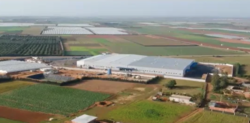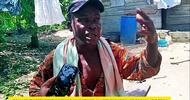Global AgInvesting | 26 February 2024
Consortium including Driscoll's completes takeover of Costa Group
By Lynda Kiernan-Stone
Driscoll’s, a global market leader of fresh blueberries, strawberries, raspberries, and blackberries, announced as a critical strategic partner in the deal, that the purchase of Costa Group – Australia’s leading grower, packer, and marketer of fresh fruit and vegetables – has been completed by a North American-based consortium led by Paine Schwartz Partners (PSP).
The consortium, which also includes British Columbia Investment Management Corporation, initially announced Costa Group’s acceptance of its $1.5 billion takeover bid in September 2023.
Costa operates across five multiple categories, creating a unique and valuable portfolio including the growing, marketing, and supplying of berries, mushrooms, glasshouse tomatoes, citrus, table grapes, and avocados. The company’s interests are vast, including more than 7,200 planted hectares (17,792 acres) of farmland, 40 hectares (99 acres) of glasshouse facilities, and three mushroom growing facilities across Australia. It also controls majority-owned, joint ventures encompassing six blueberry farms in Morocco and four berry farms in China totaling approximately 750 planted hectares (1,853 acres).
It also is a pioneering presence in the genetic development of new varieties – especially blueberries – for which it launched a record four new plant varieties in 2023 alone. This is in addition to having a healthy pipeline of products for future growth.
Paine Schwartz has a history with Costa reaching back more than a decade. It made its first investment in Costa Group in 2011 (when it was still under the name Paine & Partners).
Four years later in 2015, Paine Schwartz completed an IPO for Costa Group, a portfolio company in the firm’s Fund III, earning A$550 million at the time (US$351.8 million today), representing the country’s second largest IPO that year.
And more recently in October 2022, an entity managed by Paine Schwartz increased its stake in the company to 13.78 percent at an investment of nearly $161 million, adding to the firm’s existing 2.4 percent stake.
Likewise, this deal is reflective of the evolution of the relationship between Driscoll’s and Costa, which began in 2010.
Dricoll’s has a farming heritage spanning more than 100 years. Today, the company is a pioneer of berry flavor innovation and the trusted consumer brand Only the Finest Berries. The company develops exclusive patented berry varieties using only traditional breeding methods, and a team of agronomists, breeders, sensory analysts, plant pathologists, and entomologists work to grow seedlings that are then grown on local family farms. The company’s network includes more than 900 independent growers; its berries are grown in more than 20 countries and sold in more than 40 countries across North America, Australia, Europe, and China.
Together, Driscoll’s and Costa share equal control of a joint venture in Australia which is now the country’s leading marketer of blueberries, raspberries, strawberries, and blackberries. Driscoll’s also has an expansion program in the Americas using Costa blueberry varieties, and in 2016, Driscoll’s and Costa formalized a joint venture to frame the two companies starting a berry production company in China.
“We welcome the Costa Group into the Driscoll’s family and look forward to deepening our relationship with even more deliberate collaboration across the globe,” said Soren Bjorn, CEO, Driscoll’s. “This is one of the largest equity investments Driscoll’s has ever made, which speaks to the formidable partnership and considerable value we see in the Costa portfolio and the company’s long-term future and growth prospects.”
The third consortium partner – British Columbia Investment Management Corporation – is a global scale institutional investor with $233 billion in gross AUM including ownership stakes in Viterra and mushroom and citrus businesses.
Moving forward, Driscoll’s explained that itself and Costa will be working on specific projects to grow the global berry business, and that their existing business arrangements in China, Australia, and the Americas will continue unaffected.













